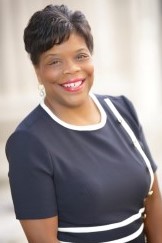COABE and NCFL join forces for co-edited journal on family literacy
Editor’s Note: This week’s blog post is co-authored by COABE Journal Editor Dr. Don Finn and NCFL President & CEO Dr. Felicia Cumings Smith.
While traveling to a conference in San Antonio in early October 2022 and waiting on a connecting flight in Atlanta, Don heard a familiar voice enthusiastically exclaiming, “You are on this flight, too!” and turned to see the bright face of NCFL President and CEO, Felicia Cumings Smith. The two of us had become acquainted earlier that year as charter members and representatives of our organizations with the Adult Literacy & Learning Impact Network (ALL IN). We shared an Uber to the conference hotel and met for dinner later that evening. Over chips and salsa at a Mexican cantina on the famous San Antonio Riverwalk, Don put on his “COABE Journal editor cap” and presented an idea to Felicia about co-producing a Family Literacy-themed edition of the journal. Plans for the first co-produced edition with another organization were already underway for fall 2023, meaning this would be COABE’s second co-produced, special-themed journal. We were both excited at the prospect!
Fast forward to the past few months, when the Call for Proposals for the Fall 2024 COABE Journal Family Literacy-themed edition opened. This edition is a natural fit for both organizations and has the potential to positively impact our members and the learners they serve. Celebrating its 25th year as a stand-alone organization, COABE is a national champion and advocate for adult education programs to support the success of individuals, their families, communities, and workplaces. COABE is guided by its mission To Inspire Educators so Adults Succeed and Communities Thrive. Similarly, NCFL has been a leader in the family literacy space for over 35 years and has developed strategies, models, and resources for families and practitioners to create multigenerational impact. Working together, we hope to highlight the importance of investment in adult literacy education and the ways in which NCFL’s family literacy model can strengthen those investments for children and families.
The history of family literacy programming at NCFL has been deeply connected to adult learners’ social and educational needs. Family literacy programming emerged in the late 1980s as literacy became a prominent issue in the United States (Soliman, 2018). US Census Bureau data demonstrating that 13% of adults living in the U.S. were “illiterate” served as a major impetus for this new focus, along with the many economic, social, and personal outcomes that arise in families with absent or low literacy skills. Family literacy programs sought to break cycles of poverty impacting multiple generations by empowering parents to develop their own literacy skills as a means of ensuring their children reach their full potential as learners.
Programs such as the Parent and Child Education Program (PACE) developed in 1985 by Sharon Darling, the Founder of National Center for Families Learning, focused on four components of family literacy: 1) adult education and literacy that supports economic self-sufficiency; 2) training for parents on how to be their children’s first teachers and partners in their children’s education; 3) age-appropriate education for children with an initial focus on early childhood, and 4) programming to support interactive literacy activities between children and parents.
The four-component model of family literacy still used nationally today was grounded in the PACE model, originally implemented in rural Appalachian areas in Kentucky to support parents’ and children’s literacy practices. This model has influenced programming across the United States and internationally (Doyle, 2012) and has led to a robust ecosystem of family literacy programs in partnership with adult education centers, community-based organizations, and community colleges.
The Family Literacy-themed edition of the COABE Journal aims to illuminate the history of adult and family literacy and highlight powerful tools it provides to support families as they develop the skills needed to make positive changes in their lives and communities. This edition, set for a fall 2024 release, seeks manuscripts from field practitioners, including teachers, tutors, and program administrators, that focus on Family Literacy programs, effective practices, innovations, partnerships, and research that have positively impacted adults and families and the programs that serve them to support the further development of adults as learners and caregivers. Submissions presenting effective practices, replicable models, and instructional and programmatic techniques are of particular interest and encouraged.
Suggested article topics include:
Innovative Practices in Family Literacy
- The role of multiple literacies (e.g., digital literacy, multilingual literacy, health literacy) in family literacy programming and practice
- Digital literacy and family literacy
- Multilingualism/translanguaging and cultural relevance in family literacy programs
- Family literacy programs beyond age 8- supporting middle and high school learners and their families
Historical Updates from Family Literacy
- Family literacy sustainability- policies and programming to support funding
- The future of Family Literacy policies and practices
Family Literacy in a Variety of Settings
- Family literacy in carceral settings
- International family literacy
Family Literacy Research and Evaluation
- Current evaluations of family literacy programming
- New research findings from family literacy practices
For information about the journal, the types of articles, submission guidelines, and criteria, visit the COABE Journal webpage.
ABOUT THE AUTHORS

Dr. Don Finn is a lifelong learner, speaker, and author who has been an adult educator for over three decades. His local, state, and national leadership has focused on serving adult learners, equipping those who instruct them, and advocating for adult learning programs. He has taught at the middle, high, and adult high school levels and led state-wide and local adult teacher professional learning. Don is the past dean of the Regent University School of Education and is an associate professor specializing in adult learning, educational technology, online learning, and curriculum and instruction. Don has been affiliated with COABE for 20 years and has held multiple roles on the board and executive board, including regional representative, board secretary, president, conference and publications chair, and COABE Journal editor since 2021.

Dr. Felicia C. Smith is a lifelong educator and national thought leader for teaching and learning who brings decades of valuable experience to advance NCFL’s mission of working to eradicate poverty through education solutions for families. Having served in a variety of leadership roles in P-12, higher education, nonprofit, and philanthropy, her career has allowed her to experience leading systems and develop a unique vantage point of a learner’s educational trajectory from preschool to adulthood. Smith holds an Ed.D. in education leadership and administration from the University of Kentucky, and an M.A. in elementary education with an emphasis on K-12 literacy development and B.S. in elementary education from the University of Louisville.